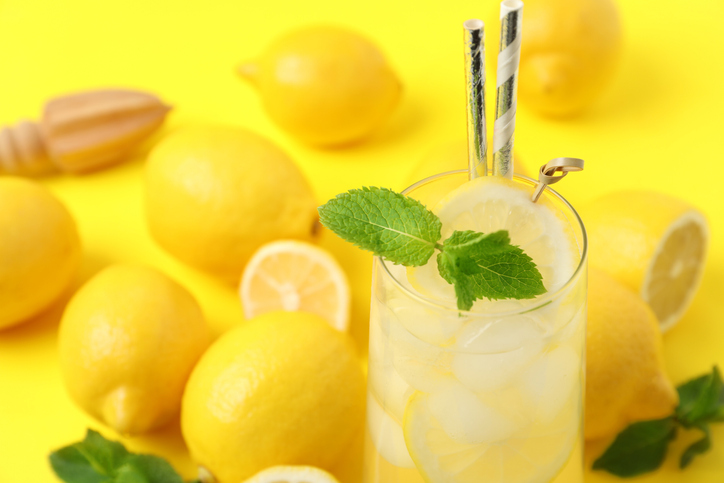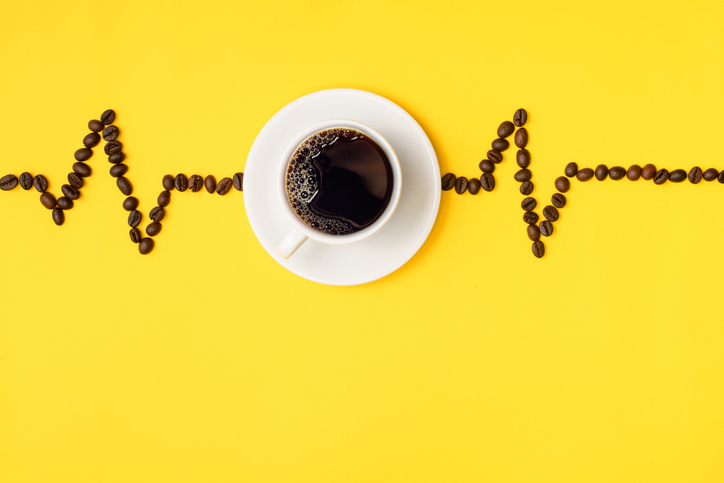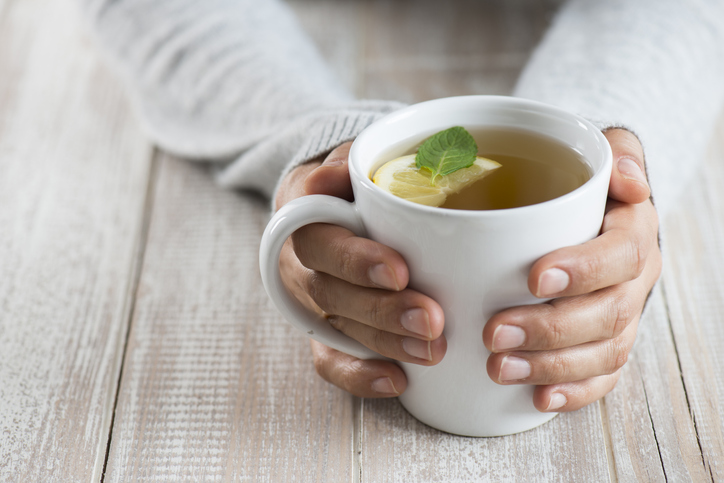Young Woman Dies After Drinking Heavily Caffeinated Lemonade at Panera Bread. Here’s What You Need to Know

By Joy Stephenson-Laws, JD, Founder
In very tragic news, Sarah Katz, a 21-year-old college student died after drinking a Charged Lemonade at Panera Bread, a popular sandwich and soup shop chain.
“The NEW Panera Charged Lemonades are the ultimate energy drink guaranteed to charge up your day. Powered by Clean caffeine from guarana and green coffee extract, these caffeinated lemonades feature refreshing mango, cranberry, or strawberry mint flavors. These drinks are cold, caffeinated, and so ready for summer. Plant-based and Clean with as much caffeine as our Dark Roast coffee,” the Panera Bread website advertises.
May sound pretty harmless, but these lemonades contain between 260-390 mg of caffeine (a usual eight ounce cup of coffee contains about 95 mg). The U.S. Food & Drug Administration (FDA) recommends that healthy adults limit their daily caffeine consumption to no more than 400mg, however, keep in mind that is equivalent to four to five cups of coffee.
Katz had a genetic heart condition called long QT syndrome type 1. According to a report from NBC news discussing a lawsuit that Katz’s family is pursuing due to her death, Katz did not drink energy drinks, which are known to have high amounts of caffeine, per the recommendation of her doctor.
“But at 390 milligrams, the large Charged Lemonade has more caffeine than any size of Panera’s dark roast coffee, the complaint says — numbers that the nutrition facts on Panera’s website confirm,” NBC reports.
“It also has guarana extract, another stimulant, as well as the equivalent of nearly 30 teaspoons of sugar, the complaint continues, adding that 390 milligrams of caffeine is higher than the caffeine content of standard cans of Red Bull and Monster energy drinks combined. Katz had gotten the large cup, which is 30 fluid ounces, according to the attorney representing her family.”
Katz’s parents filed the lawsuit, claiming that consumers were not properly warned of these drinks’ caffeine content and that their daughter would have never drank one of these Charged Lemonades had she known how much caffeine was in them. 
Panera responded by adding a warning label to the Charged Lemonades. Perhaps if Katz, who died due to cardiac arrest as a result of consuming too much caffeine from the lemonade, had this warning, she would still be here today. Consuming caffeine is such a normalized habit in our society that it’s easy to forget that it can be dangerous (especially for those with underlying health conditions).
Consuming caffeine in excess may increase heart rate and elevate blood pressure. In fact, there is such a thing as a caffeine-induced heart attack.
Of course, I am not proposing that everyone avoid caffeine, but there has to be an awareness that caffeine is legally a drug which may not be good for everyone.
“Caffeine is the most consumed psychoactive drug in the world. As a psychostimulant, it shows all the pharmacological properties of classical psychostimulants, such as cocaine and amphetamine. Those properties include arousal, motor activation, and reinforcing effects. Nevertheless, those effects are milder for caffeine, which depends on its unique mechanism of action, adenosine receptor antagonism,” according to a report published by the National Institutes of Health (NIH).
Unfortunately, this is not the first time a young person has died from consuming too much caffeine. In one of my previous blogs, Why You Should Take This Information About Energy Drinks to Heart...Literally!, I discussed children, just 14 and 16-years-old at the time, who both died from caffeine-induced cardiac events.
In another blog, Yes, You Can Overdose On Caffeine. Here’s What You Need To Know, I discussed another very tragic event in which a young father and personal trainer in the U.K. died from a caffeine overdose after taking a caffeine powder supplement.
Be especially mindful of caffeine supplements.When it comes to caffeine supplements, I wouldn’t advise taking them unless a competent healthcare professional absolutely insists, however, I would be surprised if this were prescribed to anyone.
“These products, often labeled as dietary supplements, consist of pure or highly concentrated caffeine in powder or liquid forms and are often marketed in bulk packaging with up to thousands of servings per container, requiring the consumer to measure out a safe serving from what can be a toxic or even lethal amount of bulk product,” reports the U.S. Food & Drug Administration (FDA).
“The risk of caffeine overdose increases as the concentration of caffeine in the product increases, meaning even small dosages of a highly concentrated product could lead to dangerous effects. Just one teaspoon of pure powdered caffeine can contain the same amount of caffeine as 28 cups of coffee, and a half cup of a liquid highly concentrated caffeine product contains the equivalent of more than 20 cups of coffee. These are toxic amounts that can have serious health consequences, including death.”
My heart breaks for the parents and family of Sara Katz. She was just a young woman who probably thought the drink looked fun and refreshing (because it does!) and thought she’d give it a try. Maybe I’m biased because I am a slow caffeine metabolizer and have to really limit my intake (my blood pressure rises and my heart rate increases when I drink caffeine), but I don’t think any establishment should be serving drinks that nearly reach the high limit (400 mg) that the FDA set.
The reality is that these corporations may not really care about our health. Perhaps, they care more about our money. The brains behind Panera Bread must have seen how lucrative the energy drink industry is and decided to tap into it. If you really think about it, it’s quite strange that a sandwich and soup joint would sell these highly caffeinated lemonades.
Be proactive.Be extremely diligent about knowing the ingredients (and their amounts) in foods and beverages you consume outside of your home. Just as it’s important to read food labels at the grocery store, it’s always a good idea \to know what is in the foods you eat at a restaurant. Don’t ever be afraid to ask your server what oils, for example, the establishment cooks their food in. If you have food allergies, of course, it is especially important to be curious.
If you are a self-proclaimed caffeine addict, it may be time to change this.I highly recommend reducing your intake of energy drinks and caffeine supplements. Yes there are potential benefits to drinking coffee in moderation. However, drinking coffee in excess has the potential to be detrimental to health.
(pH must-read - Are You An Excessive Coffee Drinker? Here’s Why You May Want To Stop).
You can even try switching to green tea, which contains significantly less caffeine and has multiple health benefits, including aiding with weight loss.

Also know that consuming a lot of caffeine can lead to nutritional deficiencies.
“Caffeine can cause nutrient depletion of important nutrients, like vitamin B6, and interfere with nutrient absorption of essential minerals, including calcium, iron, magnesium and B vitamins,” according to one study.
It is important to determine whether you may have vitamin and mineral deficiencies in general, which can leave you feeling fatigued but not even know it. For more information about nutritional testing, click here. To learn more about the critical minerals that can help fight fatigue read Minerals - The Forgotten Nutrient: Your Secret Weapon for Getting and Staying Healthy.
Enjoy your healthy life!
Disclaimer: This article is not intended to provide medical advice. Please consult with your doctor or another competent healthcare practitioner to get specific medical advice for your situation.
The pH professional health care team includes recognized experts from a variety of health care and related disciplines, including physicians, attorneys, nutritionists, nurses, and certified fitness instructors. This team also includes the members of the pH Medical Advisory Board, which constantly monitors all pH programs, products, and services. To learn more about the pH Medical Advisory Board, click here.







